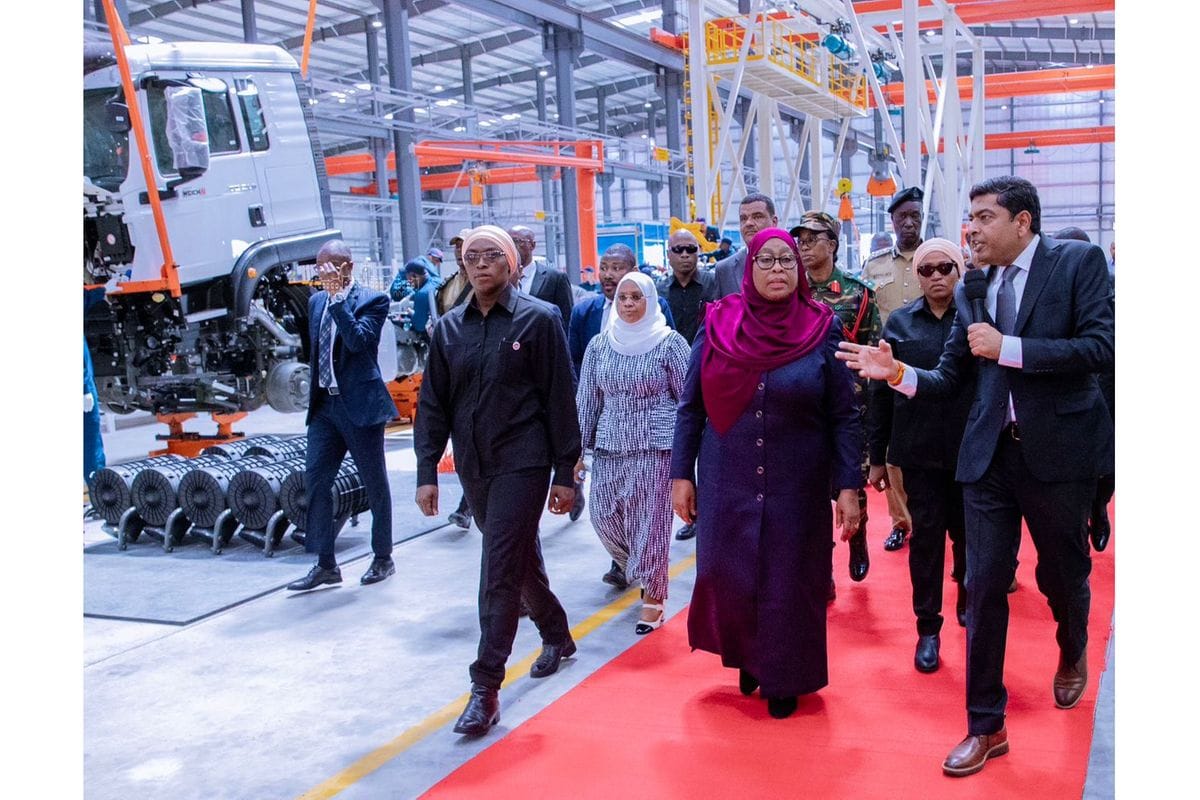Industry Protection and Assembly Expansion in Tanzania
In a significant move to bolster local manufacturing, Tanzanian industrialists are seeking government intervention to protect their businesses from the influx of cheap imports. During the inauguration of Saturn Corporation Limited’s new vehicle assembly plant in Kigamboni, Dar es Salaam, industry leaders made their case for increased import taxes. The plant, which began operations in March 2024, is dedicated to assembling Howo trucks from Sinotruk.
The Minister of Industries and Trade, Dr Ashatu Kijaji, confirmed that her ministry had received requests from Saturn Corporation and Sapphire Float Glass (Tanzania) Co., Ltd. Both companies are advocating for higher taxes on imported trucks and glass, respectively, to safeguard their investments and the jobs they create. The minister assured that the matter has been forwarded to the Treasury for consideration.
President Samia Suluhu Hassan, who attended the event, highlighted the government’s commitment to fostering investment by reducing corporate taxes for vehicle assembly operations. While she did not directly address the request for heightened import taxes, she emphasized the tax incentive’s role in promoting investment and employment.
Saturn Corporation, established in 2021, has quickly become a significant player in Tanzania’s industrial sector. With an impressive output of trucks since its recent operational launch, the company has already assembled 150 trucks ready for delivery. The assembly line provides substantial employment opportunities, with 250 direct and 1,800 indirect jobs.
Rehamtullah Habib, the director of Saturn Corporation, outlined the company’s ambitions to expand its footprint by acquiring additional land for the construction of small industries. This expansion aims to manufacture inputs locally, reducing reliance on imports and further strengthening vehicle assembly capabilities within Tanzania.
The parliamentary committee on Industries, Trade, Agriculture and Livestock, represented by chairperson Deodatus Mwanyika at the event, expressed readiness to collaborate with the government to enhance the business environment and protect local industries from unfair competition posed by cheap imports.
As Tanzania continues its journey towards industrialization, the dialogue between industry stakeholders and the government is pivotal in shaping policies that balance investment attraction with the protection against cheap imports. The outcome of these discussions could set a precedent for future trade and industrial policy in the nation.






